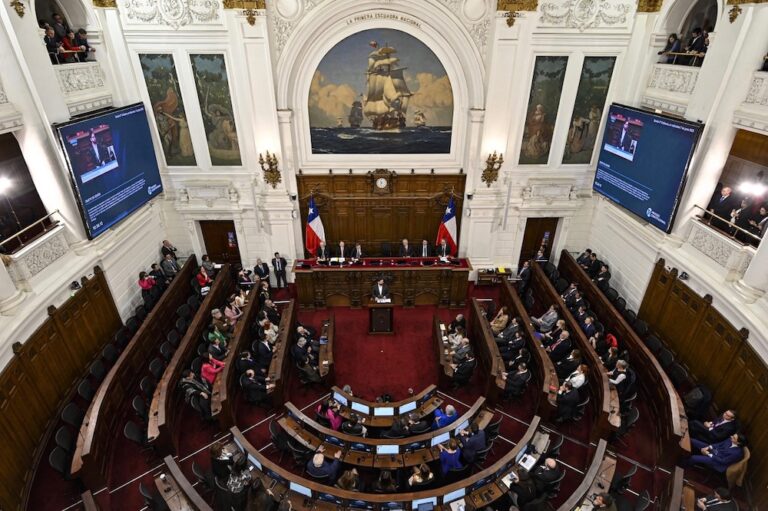Chile’s outgoing president has vetoed the Digital Television Act, a law that would have opened the way to modest progress in broadcasting in Chile. Reporters Without Borders says that new broadcast media legislation must be a priority for the country's next president.
Chile’s outgoing president has vetoed the Digital Television Act, a law that would have opened the way to modest progress in broadcasting in Chile despite being criticized for not going far enough to redistribute frequencies.
Reporters Without Borders regards the arguments deployed by the president’s office in a 19 November paper defending the veto as a misuse of the concept of “pluralism” to defend the economic interests of a few at the expense of real pluralism.
New broadcast media legislation must be a priority for Chile’s next president, who will be chosen during the second round of the presidential elections that is scheduled for 15 December.
Those most affected by the presidential veto are community media because the proposed law would have reserved a portion of the country’s broadcast frequencies for them and for local and regional media. It would also have prevented religious broadcasters from being treated as community media.
“This is a disaster for real community media,” said Maria Pia Matta, head of the World Association of Community Radio Broadcasters (AMARC). “Evangelical groups will be able to use the ‘community broadcaster’ label even if they provide no information. This is a setback both for pluralism and for our status.”
The veto also eliminates a reform under which state-owned Televisión Nacional de Chile (TVN) would have been given a second frequency at the regional level, which it could have used to broadcast not only its own programming but also content produced locally by those who do not have the resources to broadcast it themselves.
As a result, TVN will continue to have just one frequency in the name of “pluralism,” meaning “for the sake of the interests of leading commercial media close to the current government that did not want any reinforcement of the already weak state broadcast sector,” one observer commented.
Another controversial effect of the veto will be its limitation of cultural programming to four hours instead of “at least four hours” under the proposed law.
“For a vote to override the presidential veto and reinstate the original law, the constitution says you need a quorum of two thirds of the deputies and senators at the moment of voting in each house,” Pia Matta said. “In the face of such an obstacle, the only option is a new law.”


